Watching the Top 100 highest-rated movies: #21-30
In this installment of our challenge to watch the top 100 highest-rated movies of all time, my wife and I watch and rate movies ranked #21 through #30.
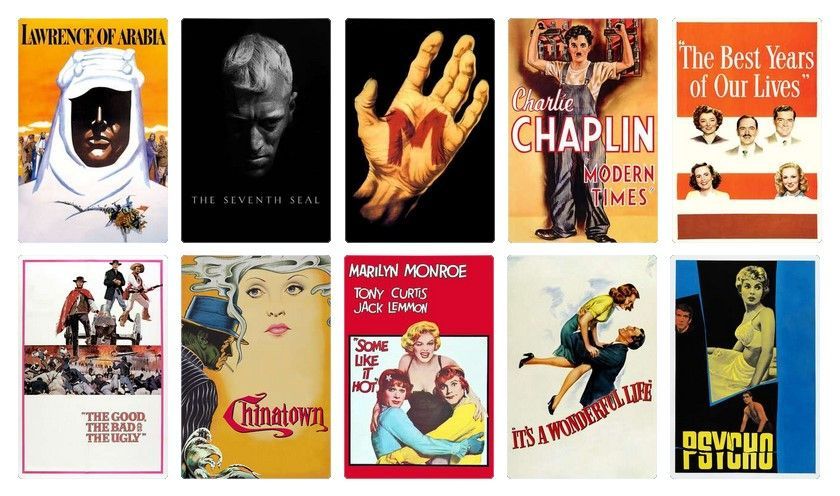
This post is part of an ongoing series where my wife and I watch the top 100 highest-rated movies of all time. You can learn more about the challenge itself, and you can see all of the movies we've watched under the tag #top-100-highest-rated-movies. You can also check out the previous post in the series where we watched movies #31-40.
#30. Lawrence of Arabia (1962)
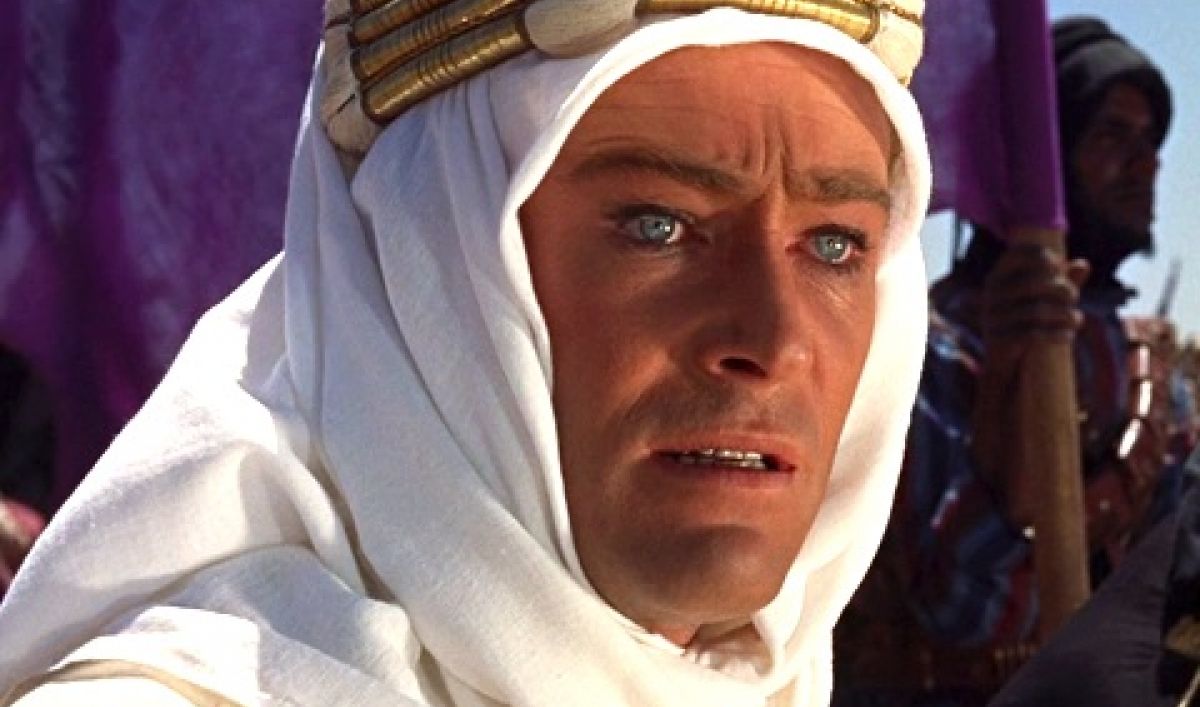
Directed by David Lean
Screenplay by Robert Bolt, Michael Wilson
Based on Seven Pillars of Wisdom by T. E. Lawrence
Starring, Alec Guinness, Anthony Quinn, Jack Hawkins, José Ferrer, Anthony Quayle, Claude Rains, Arthur Kennedy, Omar Sharif, Peter O'Toole
Did we like it? 🤷♂️👎
Would we watch it again? 👎
Ok: Lawrence of Arabia, a huge critical and financial success, 10 Academy Award nominations, and wins in seven categories including Best Picture and Best Director. It's one of the most influential films ever made, and Steven Spielberg referred to it as "a miracle".
I didn't like it very much.
Don't get me wrong: it was really impressive in many areas, especially with the epic scenes with hundreds of people on horseback, huge sets all created out in the desert, all done in real life without CG, but... I dunno. The story was weird, I didn't understand Lawrence's character at all, and when it was over, I felt at best a bit confused.
There were some highlights, especially the music. It was super cool that the movie started with a completely black screen and just the orchestral theme (although I had to check to see if the movie was streaming properly, thanks OLED TV black levels for being so awesome I thought something was broken), and the intermission (like, legit intermission, with the words INTERMISSION written at the bottom of the screen) with a full five minutes of orchestral music was also kinda surprising and was a nice break point for a movie that clocks in at something like 3 hours and 45 minutes. And it was really cool how the theme music shifted through various styles throughout the movie.
Ok, maybe my favorite parts were just about the music. Oh, and Peter O'Toole's eyes are certainly very beautiful, I will give him that.
What follows is a semi-random stream of consciousness for my observations:
Alec Guinness, Sir Obi-Wan Kenobi himself, plays an Arab prince and was wearing what I would probably call blackface in this movie. From what I've read, I guess he received critical acclaim for what was apparently a very accurate performance, and he studied the real Prince Faisal very closely in preparation. But when I started this movie, I was like, "Hey, I wonder who Alec Guinness plays in this?", and I would not have guessed an Arab prince. I didn't look this up, but I'd venture there were several other folks in various forms of blackface in this movie, and I'm pretty sure that Anthony Quinn, who played Auda abu Tayi, was wearing a really obvious (and different colored) fake nose. These choices didn't age the best, to say the least.
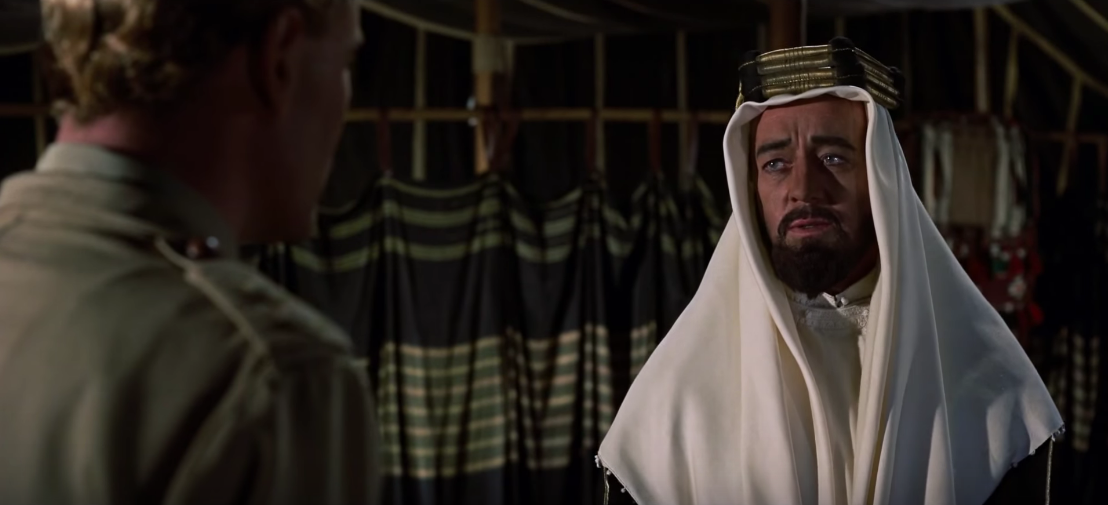
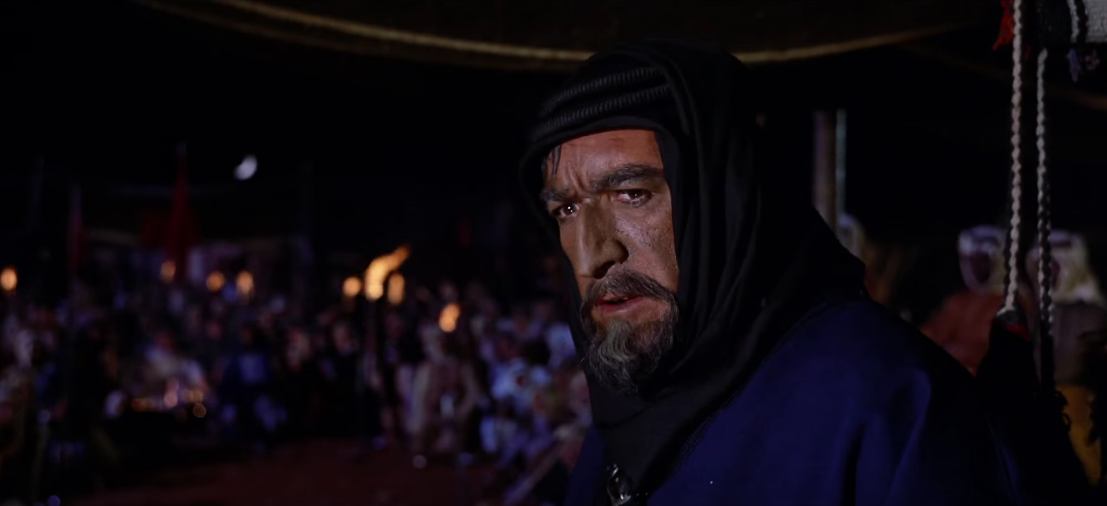
It was kinda cool watching this movie so soon after reading Frank Herbert's Dune and watching the new Dune movie. I think I read that Lawrence of Arabia was one of the inspirations for Herbert's Dune book, so that tracks. It could also be that all deserts look the same to a layperson.
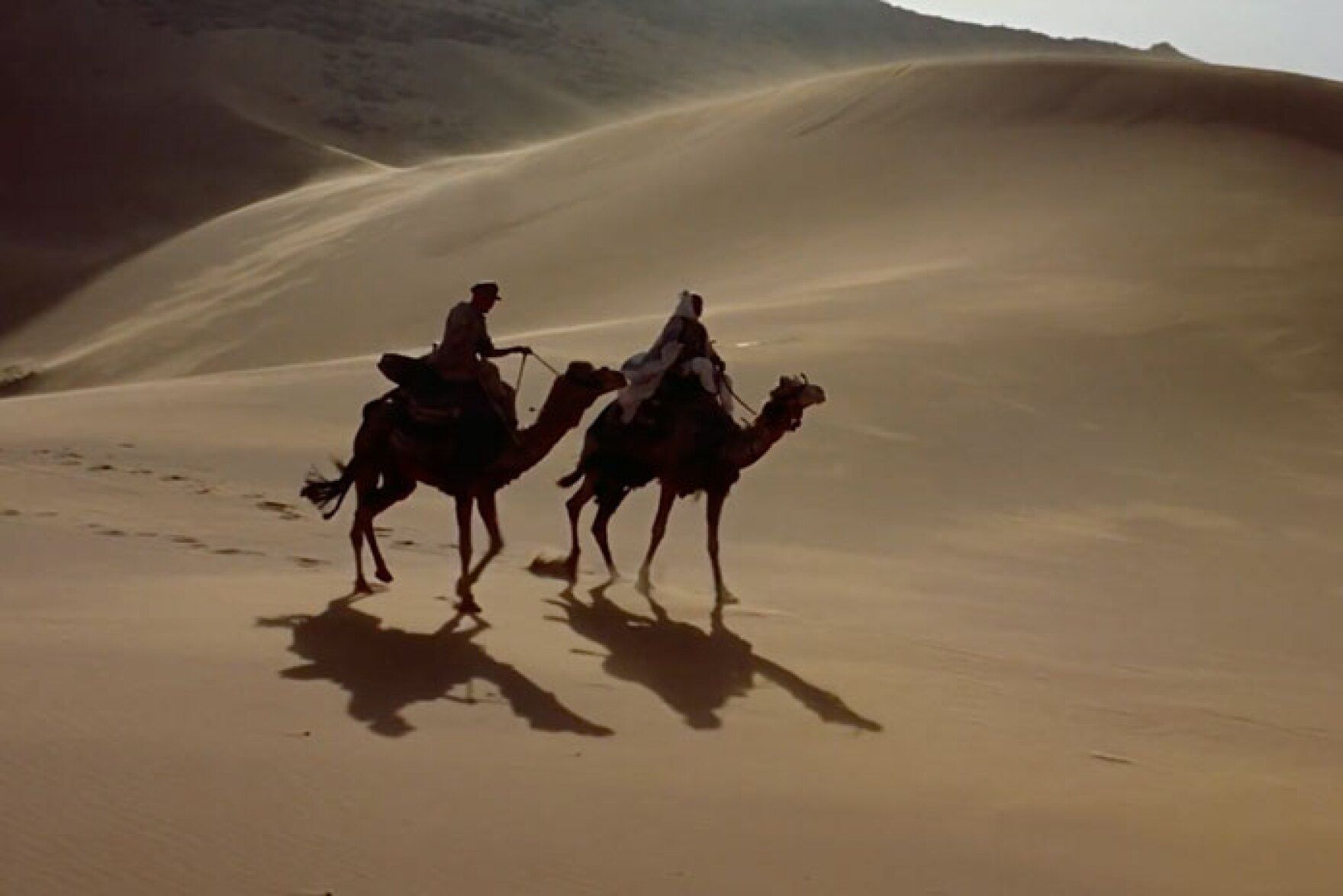
I think at least 1.5 hours could have been edited out of this movie and nobody would have noticed - mainly slow scenes where people were just commuting from A to B. There were so many scenes where it wasn't clear what the storytelling goal was. I'd be totally fine though to keep all the scenes with the sweeping vistas of sand dunes and sunsets though, I'm definitely into that.
I liked how Mr. Dryden dressed, with his three-piece suit and cane. I hope to pull off that vibe someday. I think he would be well-complemented by a pet parrot. (Oh man, is that guy from Ace Ventura 2 based off of Dryden? No, I think that guy wore a white suit...)
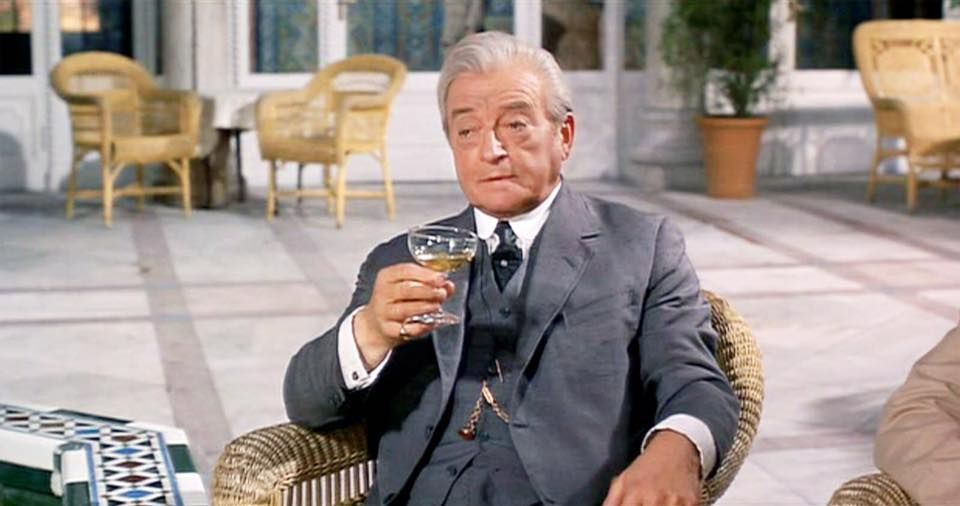
The beginning of the movie (which is actually the chronological end) is kinda weird. But we re-watched the first 15 minutes of the movie after finishing it and it made more sense. Maybe this movie is worth watching a second time? Hmm.
There was one quote I really liked: After Lawrence puts a match out with his bare fingers, and someone says that it hurts:
“Certainly it hurts! The trick [...] is not minding that it hurts.”
-T.E. Lawrence
#29. The Seventh Seal (Swedish: Det Sjunde Inseglet) (1957)
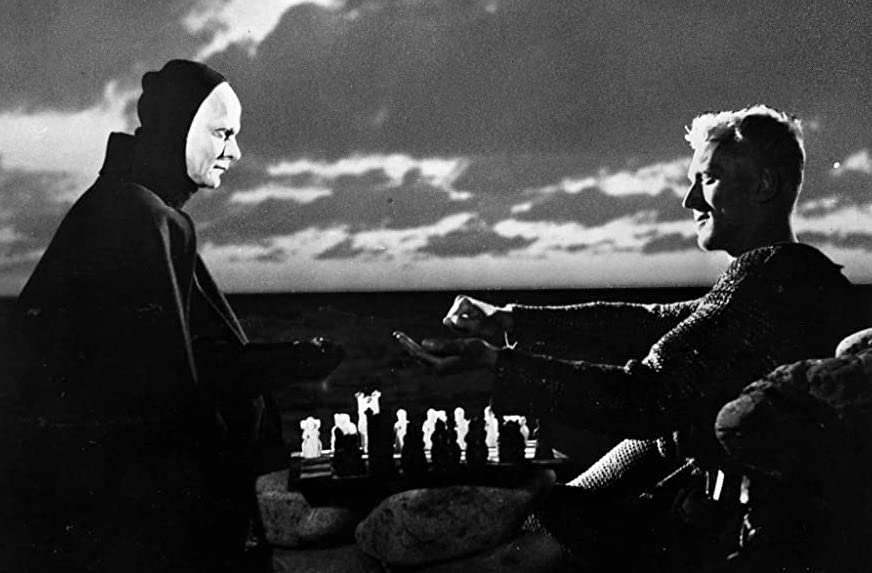
Directed by Ingmar Bergman
Screenplay by Ingmar Bergman
Based on Trämålning (play) by Ingmar Bergman
Starring Gunnar Björnstrand, Bengt Ekerot, Nils Poppe, Max von Sydow, Bibi Andersson, Inga Landgré, Åke Fridell
Did we like it? Evan: 👍, Sarah: 👎
Would we watch it again? Evan: 👍, Sarah: 👎
This is the second movie on the list from Ingmar Bergman. The previous one was #78: Persona (1966) which I Very Much Did Not Like (although Sarah didn't mind it), but this one was a straight-up banger. Seriously, I really liked it. Sarah? Not so much. I guess we're on opposite sides of the Ingmar Bergman teeter-totter.
Max von Sydow was great as a brooding knight, battling death in a long-running chess game while the bubonic plague does its thing in Sweden. I've seen parodies of this version of death all over the place, and now I finally know what it's from. There was plenty of weird stuff in this, and it's all in Swedish, but after reading the Wikipedia article I also learned that there were a bunch of clever portrayals of medieval art included in the film, which is a nice flex, Ingmar.
#28. M (German: M – Eine Stadt Sucht Einen Mörder) (1931)
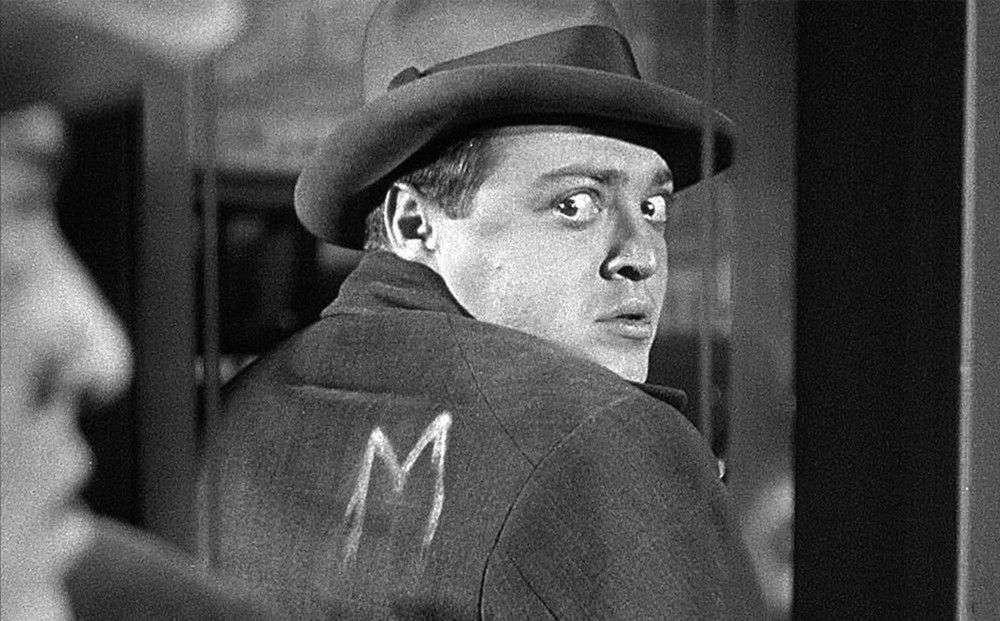
Directed by Fritz Lang
Written by Fritz Lang, Thea von Harbou
Starring Peter Lorre, Otto Wernicke, Gustaf Gründgens
Did we like it? Evan: 🤷♂️👎 Sarah: 👎
Would we watch it again? 👎
M is a German film which we watched with subtitles, and according to its Wikipedia page is a "thriller". I'm not sure I was thrilled at any point, but I do understand that this movie pioneered the concept of procedural dramas which is pretty cool.
The first half was painfully slow (seriously, we get it, there's a serial killer loose in the neighborhood, we don't need to read anymore newspaper headlines...), but it picked up a bit in the second half. As with most movies we've watched from the 1930s, the ending was abrupt, and basically ended with a PSA about keeping your kids safe rather than ending the story more naturally. It was also a little weird that the identity of the killer was revealed to us fairly early in the movie with no fanfare – I guess I've grown accustomed to more shocking Scooby-Doo-style reveals (and twists) in modern filmmaking.
I also had "In the Hall of the Mountain King" stuck in my head for like two days after watching this one, thanks to the recurring whistling leitmotif. Uh oh. Now it's stuck in my head again.
#27. Modern Times (1936)
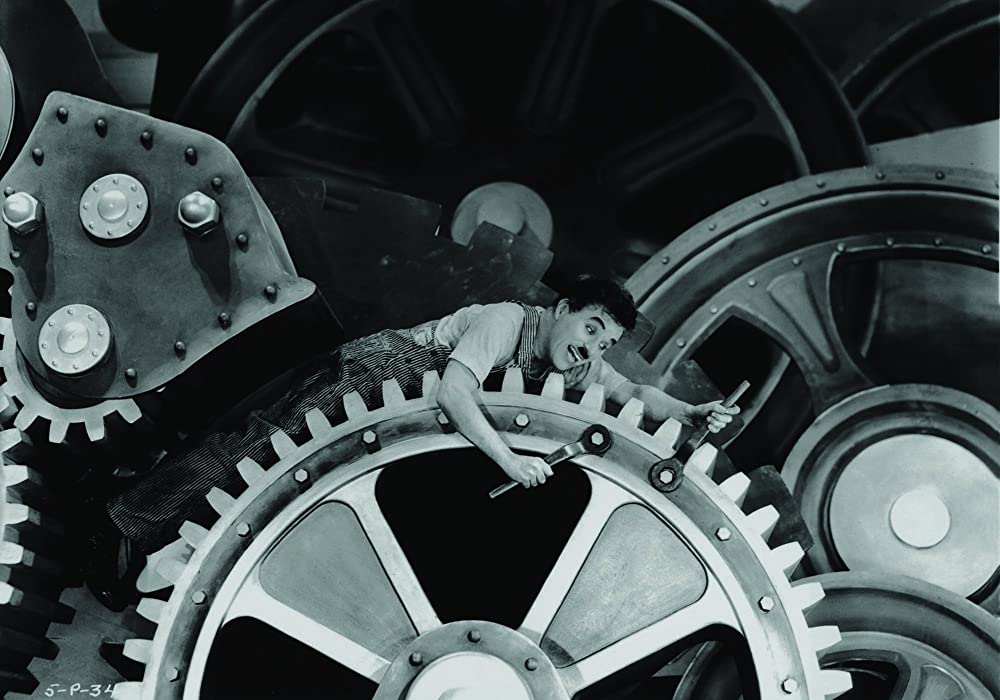
Directed by Charlie Chaplin
Written by Charlie Chaplin
Starring Charlie Chaplin, Paulette Goddard, Henry Bergman, Tiny Sandford, Chester Conklin
Did we like it? 👍
Would we watch it again? Evan: 👍, Sarah: 👎
This movie was straight 🔥 and I thought it was awesome (Sarah liked it too but wasn't quite as enthusiastic).
It's the first silent film on the list, as well as my first time seeing one. (Well, I suppose The Artist (2011) counts as a silent film though, huh? That movie was also excellent.) Modern Times is actually silent(ish); there is some limited spoken dialog in the film but only from like one menacing authoritative character - everything else is silent aside from music and sound effects. Apparently this was intentional: Charlie Chaplain was experimenting with so-called talkies, but felt that the appeal of his famous "Little Tramp" character would be lost if he spoke.
The movie was silly and was more of a compilation of independent, humorous vignettes rather than a cohesive story, but it still managed to provide some great commentary and criticism of the (then) modern, industrial world. I laughed out loud to the point of tears when The Tramp was forced to test the automatic corn eating machine, and I loved "The Nonsense Song" near the end of the movie which was stuck in my head for several days afterwards. I was also surprised to learn that the familiar-sounding and recurring leitmotif "Smile" (written by Chaplin) would later became Nat King Cole's hugely successful song of the same name.
Oh and there was some super-duper cool special effects used in this movie, particularly in the scene where he was rollerskating in the under-construction department store that makes it look like he almost skates off a ledge.
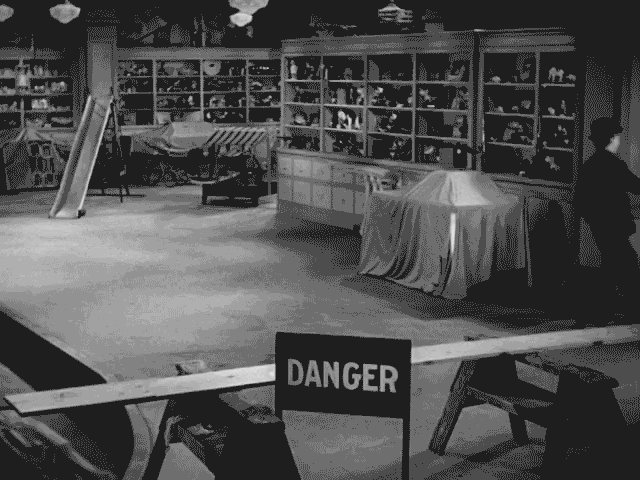
#26. The Best Years of Our Lives (1946)
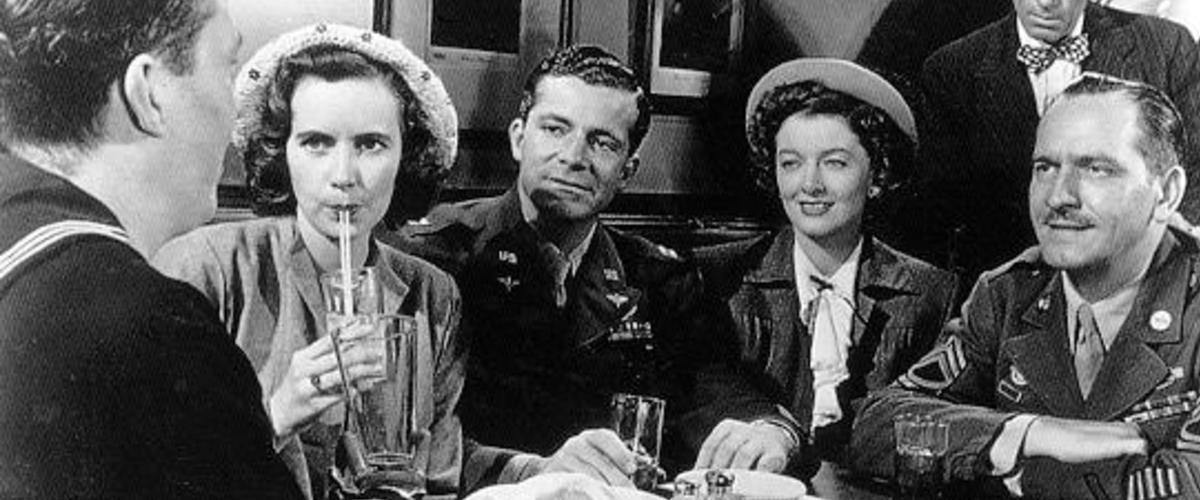
Directed by William Wyler
Screenplay by Robert E. Sherwood
Based on Glory for Me (1945 novella) by MacKinlay Kantor
Starring Myrna Loy, Fredric March, Dana Andrews, Teresa Wright, Virginia Mayo, Harold Russell
Did we like it? Evan: 👍👍, Sarah: 👍
Would we watch it again? 👍
I loved this movie and I think it's easily one of my favorites that we've seen after watching (wow) over 70 movies in The List.
It tells the story of three American men who return from World War II: Fred, who served as a Captain and USAAF bombardier but comes back to poor job prospects as a former soda jerk (a term I just learned); Al, a (comparatively) lower-ranking Army platoon sergeant who returns to his former life as a banker and was immediately offered a promotion; and Homer, the youngest of the three, a Navy petty officer who lost both of his hands and returns with two mechanical hook prosthetics.
The movie explores each character's story in detail: Fred gets to know the woman he hastily married before deploying while wrestling with challenging job prospects and multiple relationship challenges. Al gets to know his (now older) children and reunites with his wife, while struggling with alcohol abuse (although this is unfortunately shown mainly in a humorous light) and challenges at his job to balance the bank's risks against its veteran customers' loan requests. Homer, who is remarkably adept at using his mechanical hook prosthetics, is nonetheless insecure about how others see him and his loss of former independence. The stories are all a bit connected and... yeah, I just loved it. I'm actually enjoying reminiscing about it right now while I write out this summary. The movie is also super funny – I laughed out loud several times, especially in the first act.
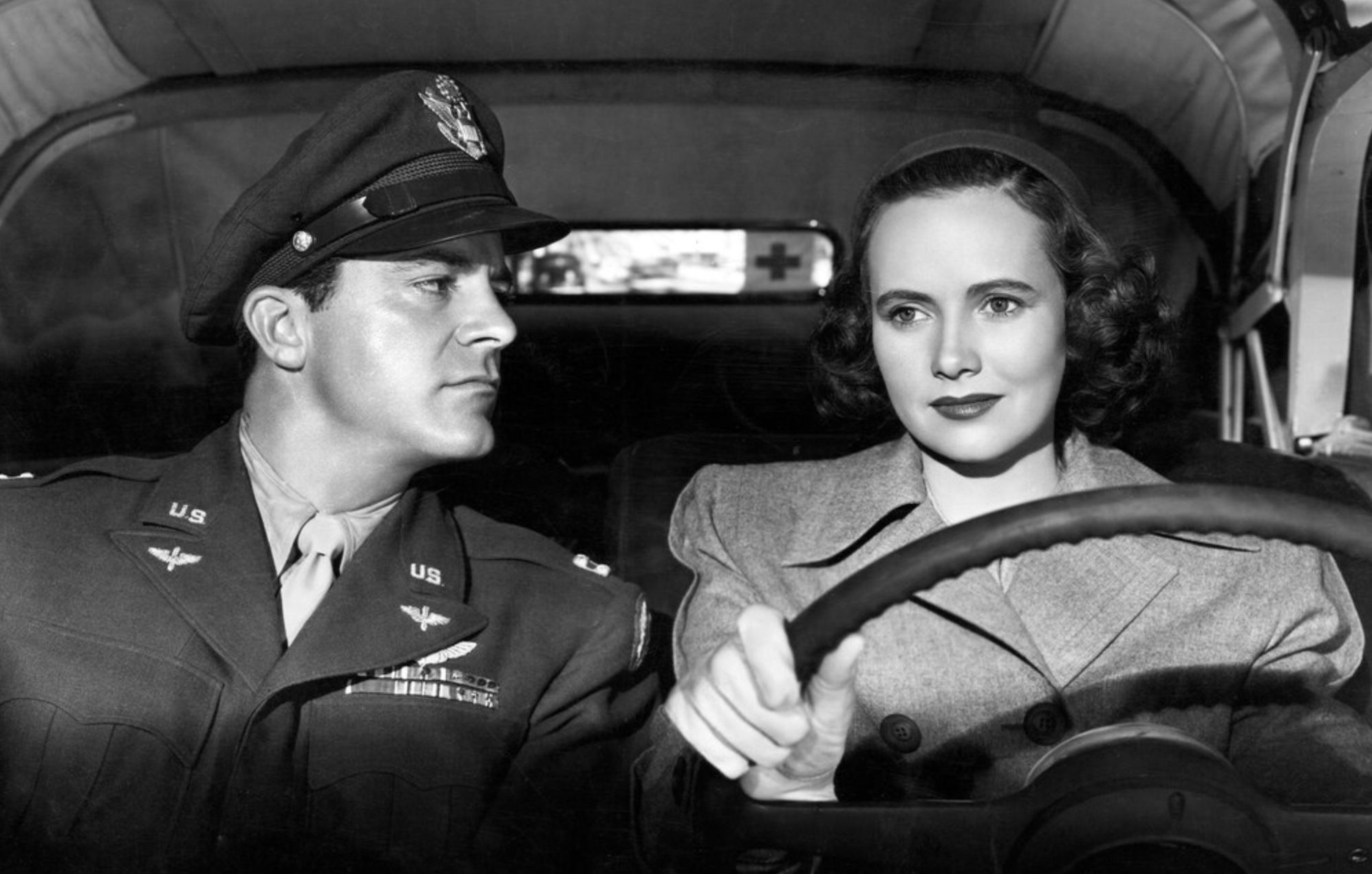
The movie won seven Academy awards, including Best Picture, Best Director, Best Actor for Fredrich March who played Al, and Best Supporting Actor for Harold Russell who played Homer. It was the highest-grossing film of all time (at the time), surpassing #52: Gone with the Wind (1939).
At almost three hours, the movie was quite long, but because I was really engaged, I didn't notice it. Sarah felt the length a bit more.
Harold Russell, who played Homer, actually did lose both of his hands during World War II (although not in combat - he lost them while teaching a course on demolitions and a faulty fuse caused dynamite to explode while he was handling it). It was super cool that he starred in this role, and earn an Academy Award, no less, although it was apparent that he was not a professional actor and it was pretty glaring especially compared to his stronger counterparts that played Al and Fred. It was also great that they showed Fred dealing with with flashbacks and nighttime panic attacks due to his experiences in the war – in the 1940s, I don't think "post-traumatic stress disorder" was a well-discussed concept.
Overall, this movie felt very progressive. I was also surprised to learn that this movie started filming just seven months after the end of WWII.
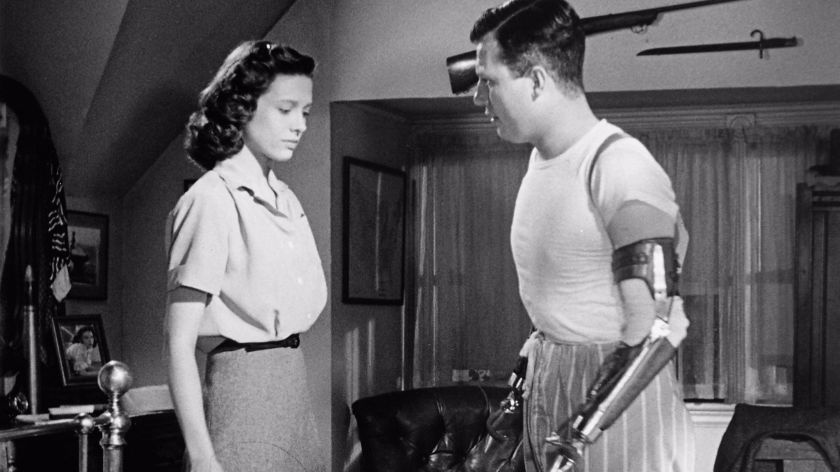
The thing that's most mystifying to me is how I had never heard of this movie. I'll happily admit I'm a bumpkin, but this movie was hugely successful and earned a ton of awards – how is it that I've heard of movies like #52: Gone with the Wind (1939) that I really didn't like at all, and not this one?
Anyway, this movie justifies my decision to take on this challenge – this is a movie that I probably never would have seen without it.
#25. The Good, the Bad, and the Ugly (Italian: Il buono, il brutto, il cattivo) (1966)
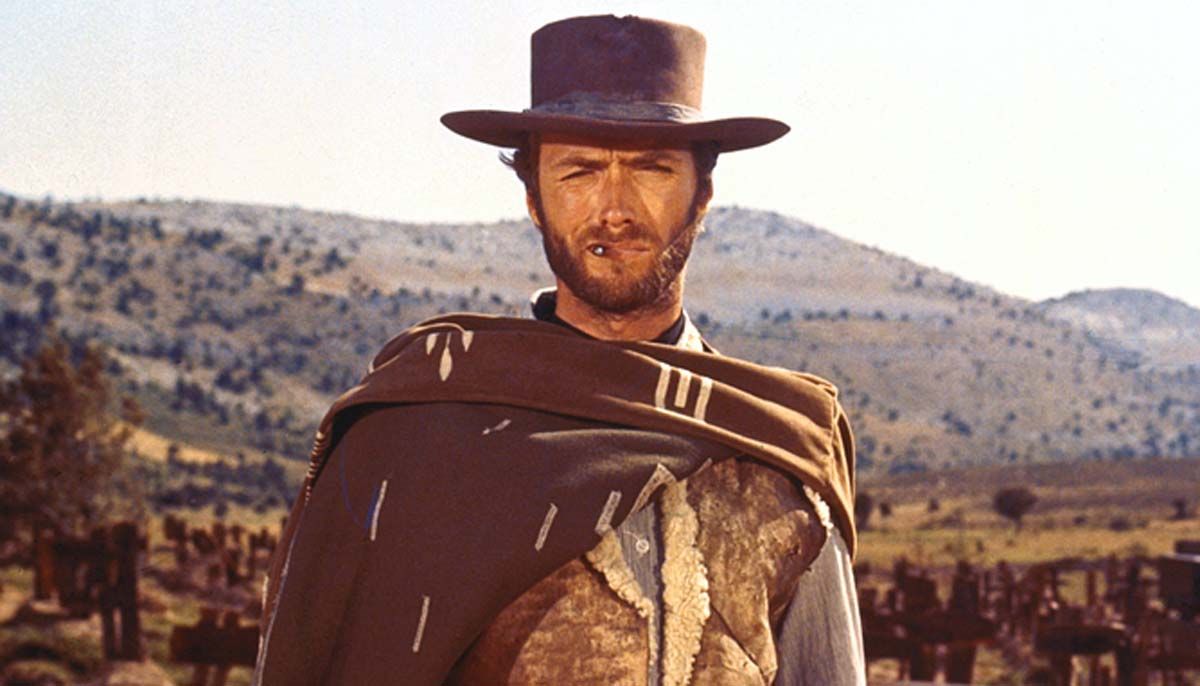
Directed by Sergio Leone
Screenplay by Age & Scarpelli, Luciano Vincenzoni, Sergio Leone
Starring Clint Eastwood, Eli Wallach, Lee Van Cleef
Did we like it? 👎
Would we watch it again? 👎
I know this movie is super famous, and I'm pretty sure I know several people who like it a lot, but I don't understand it. It was long, kinda boring, and there wasn't much in the story or acting to make it stand out. I have nothing against Westerns, and I recall enjoying other Clint Eastwood Westerns like The Outlaw Josey Wales (1976), but I was pretty glad once this one was over. I'm genuinely curious though, so I'm going to ask around and see if someone in my circle of friends can help me understand what I missed. There must be something.
(Ok, postscript, I got some responses from my friends: They liked the recurring lieitmotifs and how they represent the individual characters, the fact that this was a more gritty Western compared to many of its predecessors in the genre, it used more experimental filmmaking styles and cinematography, the pacing, that it's based on a Kurosawa film, and its overall style.)
Here's what I did find interesting: Right off the bat, it was clear something weird was going on with the spoken audio in this movie. It looked like bad lip syncing. I knew the movie was filmed in Europe (mostly in Spain), and had an international cast, so my first thought was: is this movie dubbed into English? But then there were scenes with English-speaking actors who were clearly speaking English, but they had that slightly out-of-sync audio as well.
I looked into it, and it turns out that the whole movie was shot with no audio. Apparently that was somewhat common for the time, especially for movies directed by Sergio Leone. I guess there were several reasons for this: Leone liked to blast the movie's soundtrack while filming a scene and shout things to the actors, and that recording clean audio in real-world environments was technically challenging at the time. So, every bit of audio you hear in this movie - spoken words, horses galloping, gunshots, ambient background noises - were all recorded later and added in post-production. Everything except for the spoken parts were fantastic and I would have never known they were dubbed, but the lip synching off throughout the whole movie and was a minor distraction until I (kinda) started getting used to it.
Oh, and one more interesting thing about the dubbing: Because the movie was shot without sound, all of the actors spoke their lines in their native languages and then it was dubbed into the correct language in post-production. That means there were some scenes where an Italian-speaking actor is speaking Italian, along with an English-speaking actor speaking English, and in the American release, both individuals are dubbed into English (with the Italian actor being very noticeably dubbed). The same goes for other countries, like in the Italian release (where this movie derives its genre name, "Spaghetti Western") – Clint Eastwood spoke his lines in English and was dubbed into Italian, while his Italian counterparts recorded their lines just as spoken in the film. Neat idea, I guess... and very frugal.
The last thing I'll mention is the super famous main theme created by Ennio Morricone – you know, the one with the whistling sound that I'm pretty sure I've heard in every cartoon that ever had a standoff in the Wild West. I imagine tumbleweeds every time I hear it. I've heard this tune a million times, but didn't know it was from this movie. It was a pretty cool leitmotif, changing and evolving substantially throughout the film, although it was so heavily used that it started to get a bit annoying after three hours.
Ok, one last thing: Clint Eastwood's costume – the fur vest, the poncho thing over his shoulders, and an old-timey cigar clenched in his teeth – looked super-duper cool.
#24. Chinatown (1974)
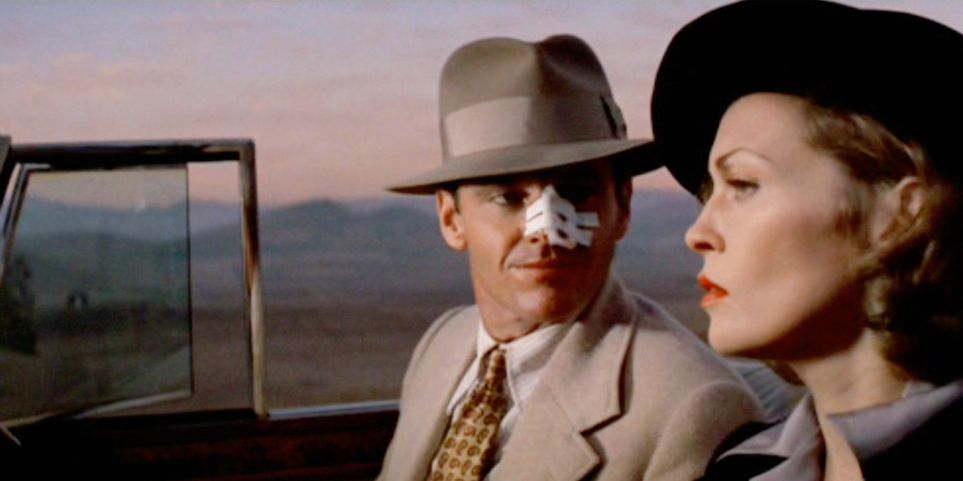
Directed by Roman Polanski
Written by Robert Towne
Starring Jack Nicholson, Faye Dunaway, John Hillerman, Perry Lopez, Burt Young, John Huston
Did we like it? Evan: 👍, Sarah: 🤷♀️👍
Would we watch it again? 🤷♂️👍
Overall, I really enjoyed this movie. The story was interesting, the acting and cinematography were good, and I was engaged the whole time. It was also kinda funny, like when the main character is asked on the phone, "Are you alone?" to make sure they're having a private conversation, and Jack Nicholson responds, "Aren't we all?" Sarah was a bit bored in the first half, mainly because she thought the premise about the whole California water wars thing was a bit mundane, but she liked it more as the story unfolded.
The ending was a sharp 180° turn and I have mixed feeling about it, but it was unique and, somehow, it seemed to work (I won't say much more so as to not spoil this 48-year-old movie for you).
With a sample size of two (see also: #87: L.A. Confidential (1997)), I think I either like neo-noir crime films, or neo-noir crime films set in L.A., or something like that. I'd definitely watch more movies like this.
#23. Some Like It Hot (1959)
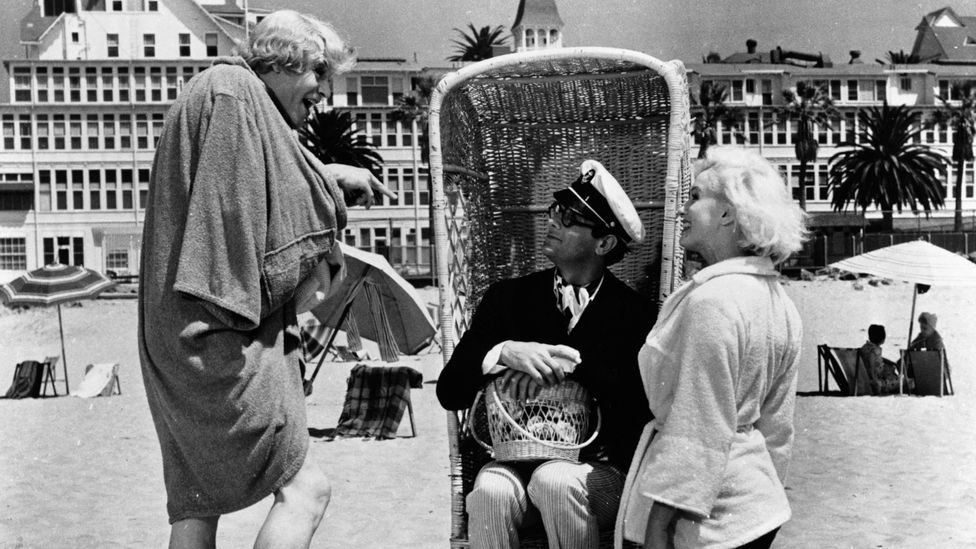
Directed by Billy Wilder
Screenplay by Billy Wilder, I. A. L. Diamond
Starring Marilyn Monroe, Tony Curtis, Jack Lemmon, George Raft, Joe E. Brown, Pat O'Brien
Did we like it? 👍
Would we watch it again? 👍
We liked this one a lot, and it was definitely one of the funniest films we've seen on this list so far. I think the best parts came from Tony Curtis, posing as the wealthy aristocrat Shell Oil Junior, like when he says of his yacht, "The ship is in ship-shape shape!" which made us both laugh out loud. There were a lot of funny quips and nonsensical recurring gags throughout the whole film. I also thought that Jack Lemmon was much funnier in this role than he was in #39: The Apartment (1960), also written and directed by Billy Wilder.
This was the first time we've seen a movie starring Marilyn Monroe. She was good, but I learned from the Wikipedia article that it was difficult for her to perform basic lines during the movie and apparently was struggling with addiction at the time. I wouldn't have guessed, but it's kinda sad nonetheless.
Apparently this movie was supposed to have been shot in color, per Marilyn Monroe's contract, but because Curtis' and Lemmon's make-up made them look "ghoulish", so they opted to shoot it in black-and-white. That was probably the right call.
Interestingly, this movie was one of the first 25 movies ever to be inducted for preservation into the United States National Film Registry. It also pushed the limits of the restrictive Hays Code censorship guidelines of the time, and likely contributed to their abandonment.
We'd definitely watch this one again.
#22. It’s a Wonderful Life (1946)
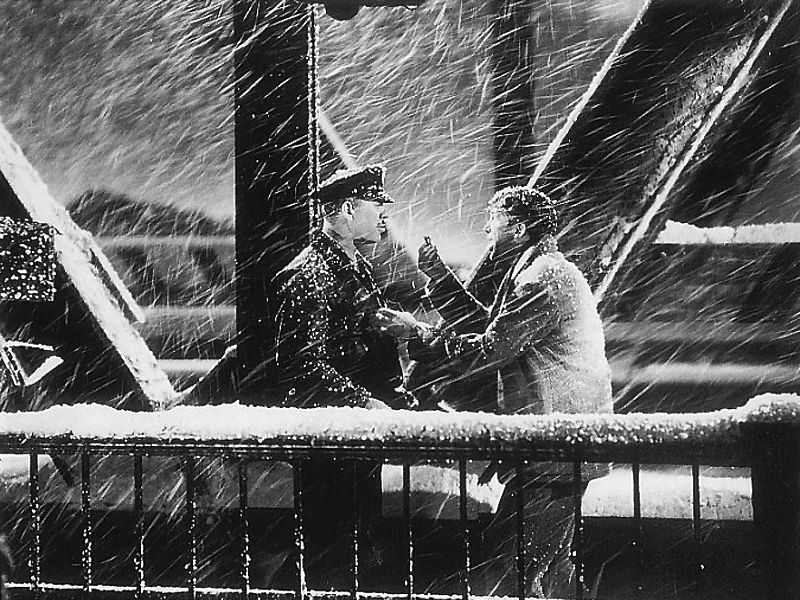
Directed by Frank Capra
Screenplay by Frances Goodrich, Albert Hackett, Frank Capra
Based on The Greatest Gift by Philip Van Doren Stern
Starring James Stewart, Donna Reed, Lionel Barrymore, Thomas Mitchell, Henry Travers, Beulah Bondi, Ward Bond, Frank Faylen, Gloria Grahame
Did we like it? 👍👍
Would we watch it again? 👍👍 (Yes, likely every Christmas, forever)
We skipped ahead a few in The List to watch this one out of order because it's one of our holiday traditions (don't worry, it's in the Ground Rules).
I don't have a lot to say about this one; we love it, we watch it pretty much every year around Christmas / New Years, and I think it has a wonderful, simple story and ends on a high note. Jimmy Stewart is awesome, it's quite funny (while still being serious at times), and I pick up a few new things every time I watch it.
After reading its Wikipedia page, I was surprised to learn that it was a huge box office flop, apparently mystifying Jimmy Stewart, and that it didn't become successful until much later in the 1970s when its copyright (apparently accidentally) lapsed and the movie entered the public domain, allowing it to be played royalty free on cable networks. It's actually a really interesting situation: How many spectacular movies are out there, having failed at the box office, but never getting a chance to succeed due to restrictive copyright controls?
#21. Psycho (1960)
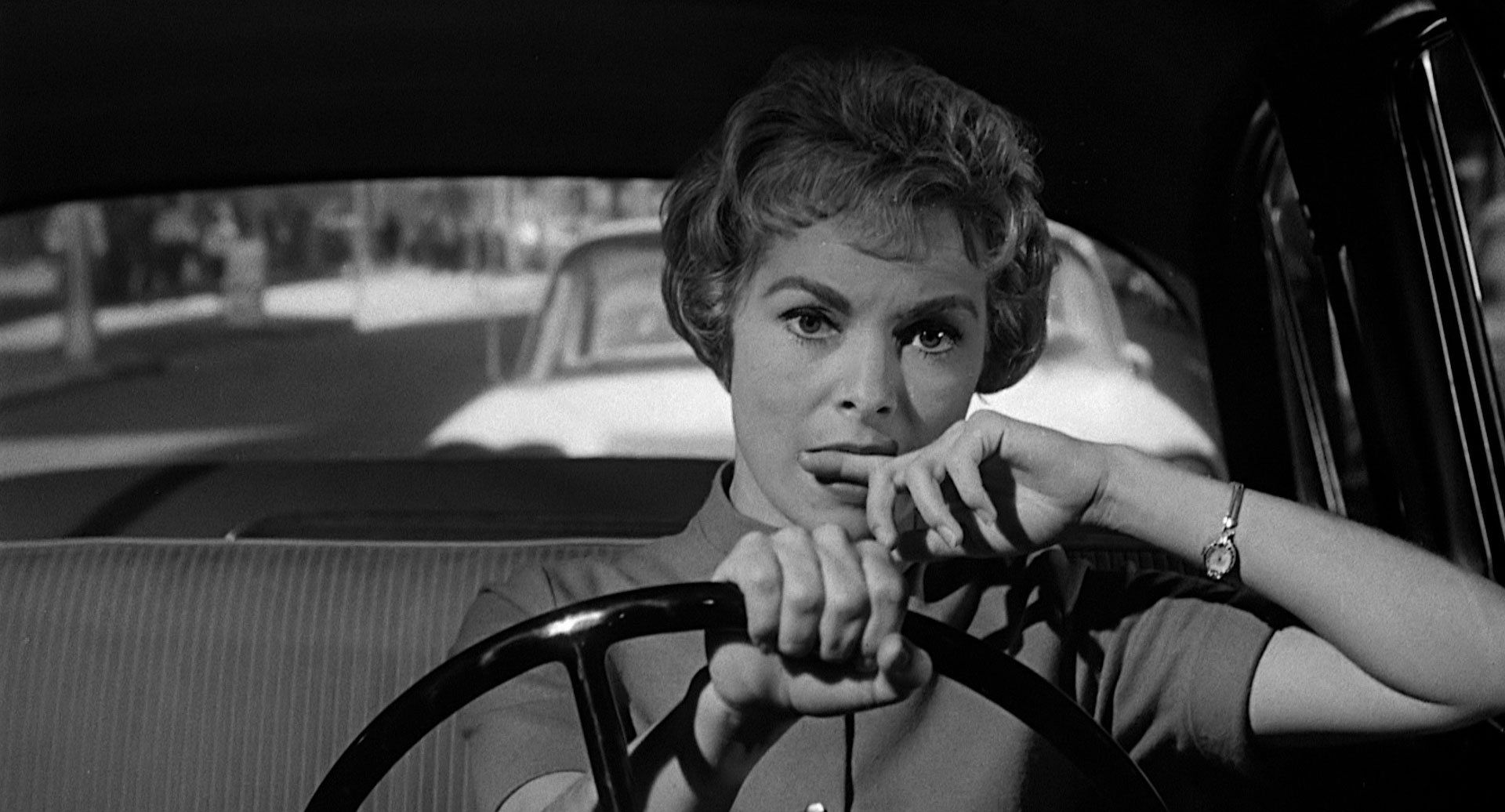
Directed by Alfred Hitchcock
Screenplay by Joseph Stefano
Based on Psycho by Robert Bloch
Starring Anthony Perkins, Vera Miles, John Gavin, Martin Balsam, John McIntire, Janet Leigh
Did we like it? Evan: 👍, Sarah: 👎
Would we watch it again? 🤷♂️👎
This was my first time seeing Psycho, and it's another great example of why I'm glad we're watching movies on The List – I've seen a million parodies and homages to this movie, but I had never seen the original thing.
I think it's hard for a modern audience to truly appreciate this movie. It's really well done, but it's the same problem I have when I watch older horror movies – we're just so desensitized to surprises and twists, and the fear centers of our brains have unreasonably high standards now when it comes to audio and visual stimuli. I have no doubt that this movie was terrifying back in 1960 and was likely innovating in multiple dimensions, but I think I experienced more terror in five minutes of watching Paranormal Activity in 2007 than I felt the entire time watching Psycho. But that's ok – I don't think we'd have modern psychological thrillers or horror movies without the groundwork that Hitchcock and his team established with movies like Psycho.
A few things that really stood out to me:
Anthony Perkins, who played Norman Bates in the movie, was fantastic and I loved his acting. I ignorantly had never heard of him, but I think he has one of the longest Wikipedia pages I've ever read (have I mentioned how much I enjoy going down Wikipedia rabbit holes as a result of this process)?
Also, we streamed Psycho on Apple TV, and the transfer quality was absolutely spectacular. We're very lucky to be watching these movies at this point in time; so many of them have been remastered in recent years, where teams of preservationists have painstakingly obtained the original source material, scanned it in at 4K resolution, and done a bunch of magic to improve its quality. No joke: the video quality of this movie was so good in 4K that it looked like it was released this year. Heck, I'm currently watching 2002's Firefly and it looks like absolute dog water in comparison.
Even though this movie wasn't one of our favorites, it continues the trend of us generally being impressed by Alfred Hitchcock's movies. He unsurprisingly has several on this list, and all of them have stood out both in terms of filmmaking as well as story. I used to watch a lot of the anthology TV series Alfred Hitchcock Presents when I was a kid, and watching these movies really makes me want to go back and check that out as well. (Oh and that was a fun fact I learned from Psycho's Wikipedia page: Hitchcock wasn't able to secure enough funding to make this movie, so he hijacked his television production crew from Alfred Hitchcock Presents to do it on the cheap – clever!)
--
If you liked this, you should check out our next post in the series where we watch movies #16-20.
Want to see more posts about our challenge to watch the top 100 highest-rated movies of all time? Check out the tag #top-100-highest-rated-movies, and you should also sign up for my newsletter (it's free!) to get automatically notified when I make new posts in the series.